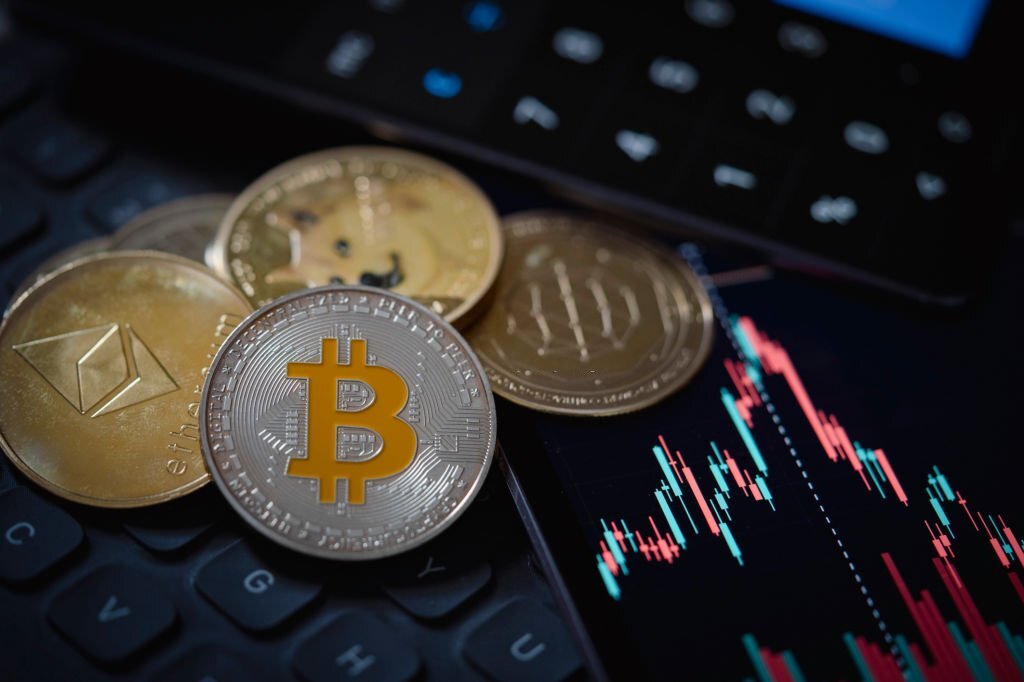Cryptocurrency
This ‘block reward’ paid to miners is the origin of all cryptocurrency coins (again, not tokens!). After miners (or validators for PoS networks) are given their reward, these parties can sell their coins on popular cryptocurrency exchanges like Coinbase https://helpforerror.com/.
Cryptocurrencies are digital currencies that generally operate outside the regulation of any individual company or government. In contrast to traditional currencies like the U.S. dollar, cryptocurrencies are not backed by a central authority, such as the U.S. government.
This process is mostly done or achieved by solving complex math puzzles called as Proof of Work (PoW). It validates the data in the blocks of Blockchain by producing a cryptographic solution. The miners upon solving the complex math problems would receive rewards in the form of cryptocurrency but after a certain level, miner would get rewards through fee paid for work done. The most widely mined cryptocurrency are Bitcoin and Ethereum.
Cryptocurrency prices
As already mentioned, there are plans to transition to a proof-of-stake algorithm in order to boost the platform’s scalability and add a number of new features. The development team has already begun the transition process to ETH 2.0, implementing some upgrades along the way, including the London hard fork.
In January 2024 the SEC approved 11 exchange traded funds to invest in Bitcoin. There were already a number of Bitcoin ETFs available in other countries, but this change allowed them to be available to retail investors in the United States. This opens the way for a much wider range of investors to be able to add some exposure to cryptocurrency in their portfolios.
The very first cryptocurrency was Bitcoin. Since it is open source, it is possible for other people to use the majority of the code, make a few changes and then launch their own separate currency. Many people have done exactly this. Some of these coins are very similar to Bitcoin, with just one or two amended features (such as Litecoin), while others are very different, with varying models of security, issuance and governance. However, they all share the same moniker — every coin issued after Bitcoin is considered to be an altcoin.
As compensation for spending their computational resources, the miners receive rewards for every block that they successfully add to the blockchain. At the moment of Bitcoin’s launch, the reward was 50 bitcoins per block: this number gets halved with every 210,000 new blocks mined — which takes the network roughly four years. As of 2020, the block reward has been halved three times and comprises 6.25 bitcoins.
A few years ago, the idea that a publicly traded company might hold Bitcoin on its balance sheets seemed highly laughable. The flagship cryptocurrency was considered to be too volatile to be adopted by any serious business. Many top investors, including Warren Buffett, labeled the asset a “bubble waiting to pop.”

Top cryptocurrency
Lastly, there’s a crypto that’s been making a name for itself due to its focus on interoperability. It aims to enable different blockchain networks to communicate with each other, a feature that could revolutionize the industry. Remember, it’s crucial to conduct your own research before deciding to invest in any crypto.
Binance Coin (BNB) is a form of cryptocurrency that you can use to trade and pay fees on Binance, one of the largest crypto exchanges in the world. Binance coin is native currency for BNB chain, which is a Ethereum-like chain that supports decentralised applications, other tokens and NFTs. Like both ETH and SOL on their respective chains, BNB is necessary to pay transactions on the BNB chain and denominates trading pairs on decentralised exchanges.
Cryptocurrencies are various forms of digital money that are usually based on blockchain technology. Blockchain technology allows most cryptocurrencies to exist as “trustless” forms of transactions. This means there is no centralized authority overseeing the transactions on a cryptocurrency’s blockchain.
While you can invest in cryptocurrencies, they differ a great deal from traditional investments, like stocks. When you buy stock, you are buying a share of ownership of a company, which means you’re entitled to do things like vote on the direction of the company. If that company goes bankrupt, you also may receive some compensation once its creditors have been paid from its liquidated assets.
Created in 2009 by Satoshi Nakamoto, bitcoin (BTC) is the original cryptocurrency. As with most cryptocurrencies, BTC runs on a decentralised blockchain technology, which is a ledger logging transactions distributed across a network of thousands of computers. Because additions to the distributed ledgers must be verified by solving a cryptographic puzzle, a process called proof of work, bitcoin is kept secure and safe from fraudsters.
Finding the perfect crypto wallet can be a bit tricky, as the best one for you will depend on your specific needs and preferences. Crypto wallets come in different types, such as hardware and software wallets, each with its own pros and cons. Don’t forget to consider factors like security, ease of use, and compatibility with various cryptocurrencies when selecting a wallet. To help you make an informed decision, we recommend reading our crypto wallet review of the Best Crypto Wallets for Australians.
